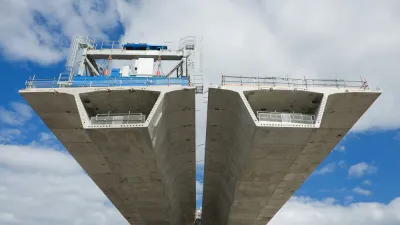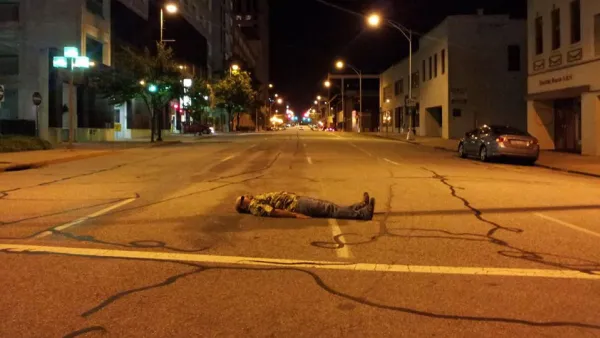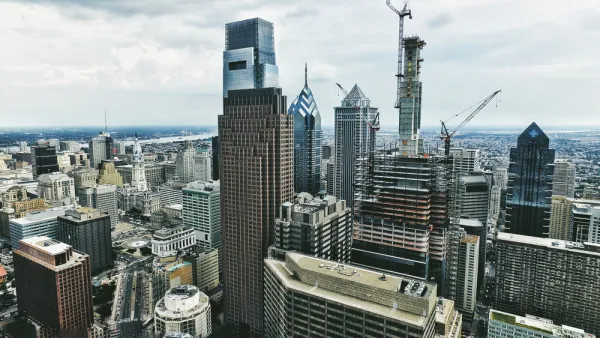Charles Marohn of Strong Towns makes the case that whoever's in the White House, simply increasing federal spending on infrastructure isn't the wisest move.

In this piece, Charles Marohn argues that the relationship local governments have to federal funding is fundamentally unhealthy. He writes, "the way we have structured our governments, cities sit at the bottom of the food chain. Their bureaucracies are oriented up that chain, looking to the programs of state and federal governments for solutions. Instead, they need to be reoriented to the neighborhoods in their own communities."
Marohn cites several ways federal spending can give cities a short-term boost, but saddle them with long-term consequences.
- That the federal government "will pay to build things and then state and local governments are tasked with maintaining them."
- Federal infrastructure spending favors low-density, low-amenity suburbs and exurbs: areas with the highest costs and lowest returns.
- In a slow-growth or no-growth economy, federal spending should to support maintenance and efficiency rather than new construction.
- Federal projects put localities into a debt cycle. "Local governments generally rely on property and sales tax, but federal projects rarely add enough to the local tax base to extinguish the debt while sales tax revenue from a project, if there is any, ends with the project."
FULL STORY: Five Ways Federal Infrastructure Spending Makes Cities Poorer

Analysis: Cybertruck Fatality Rate Far Exceeds That of Ford Pinto
The Tesla Cybertruck was recalled seven times last year.

National Parks Layoffs Will Cause Communities to Lose Billions
Thousands of essential park workers were laid off this week, just before the busy spring break season.

Retro-silient?: America’s First “Eco-burb,” The Woodlands Turns 50
A master-planned community north of Houston offers lessons on green infrastructure and resilient design, but falls short of its founder’s lofty affordability and walkability goals.

Test News Post 1
This is a summary

Analysis: Cybertruck Fatality Rate Far Exceeds That of Ford Pinto
The Tesla Cybertruck was recalled seven times last year.

Test News Headline 46
Test for the image on the front page.
Urban Design for Planners 1: Software Tools
This six-course series explores essential urban design concepts using open source software and equips planners with the tools they need to participate fully in the urban design process.
Planning for Universal Design
Learn the tools for implementing Universal Design in planning regulations.
EMC Planning Group, Inc.
Planetizen
Planetizen
Mpact (formerly Rail~Volution)
Great Falls Development Authority, Inc.
HUDs Office of Policy Development and Research
NYU Wagner Graduate School of Public Service




























